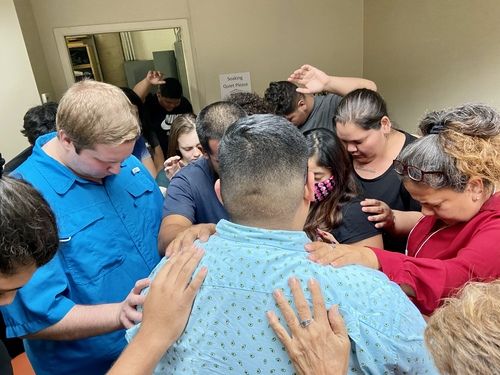

If you had no history or exposure to the church at all other than reading the New Testament, what would you expect to see if someone invited you to a gathering of a church? We’ve thought about this question a lot. Based on the more than fifty “one another” commands in the New Testament, we would expect to see a lot of love among Christians when they gather. Based on the way Paul describes the church in 1 Corinthians and Ephesians, we would expect to see people contributing their spiritual gifts. We’d picture people living like a true family inside and outside of the gathering. We’d expect to see a lot of smiling, a lot of hugging, a lot of crying together, a lot of meals shared, and a lot of life connection throughout the week. We wouldn’t picture a huge auditorium or rows or a stage or everyone being quiet while just a few people lead. We’re not saying it’s wrong to do this. But the question is: do our structures undermine or contribute towards God’s commands in Scripture, especially the ones that are emphasized and repeated? And if there are more than 50 “one another” commands that call us to radical, intimate, deep love for each other, why would the thing we call “church” be something where we don’t interact with or know each other?
In order to help us truly love each other, we’ve committed to having churches of 10-20 people meeting in a home. For us, we want to everyone to opt into sharing life, and therefore the primary context of church for them is a spiritual family of 10-20 people.
In order to help us truly love each other, we’ve committed to having churches of 10-20 people meeting in a home. For us, we want to everyone to opt into sharing life, and therefore the primary context of church for them is a spiritual family of 10-20 people.
They worshiped together at the Temple each day, met in homes for the Lord’s Supper, and shared their meals with great joy and generosity. Acts 2:46
Our mission is to form intense, sacrificial community. We believe in a regular duplication of churches and by doing this we fulfill the commission to make disciples. These churches meet in homes to fulfill the type of community found Acts 2. House Churches meet throughout the week and focus on bible study, worship and fellowship just like you would find in churches today but on a more intimate and relational scale.

